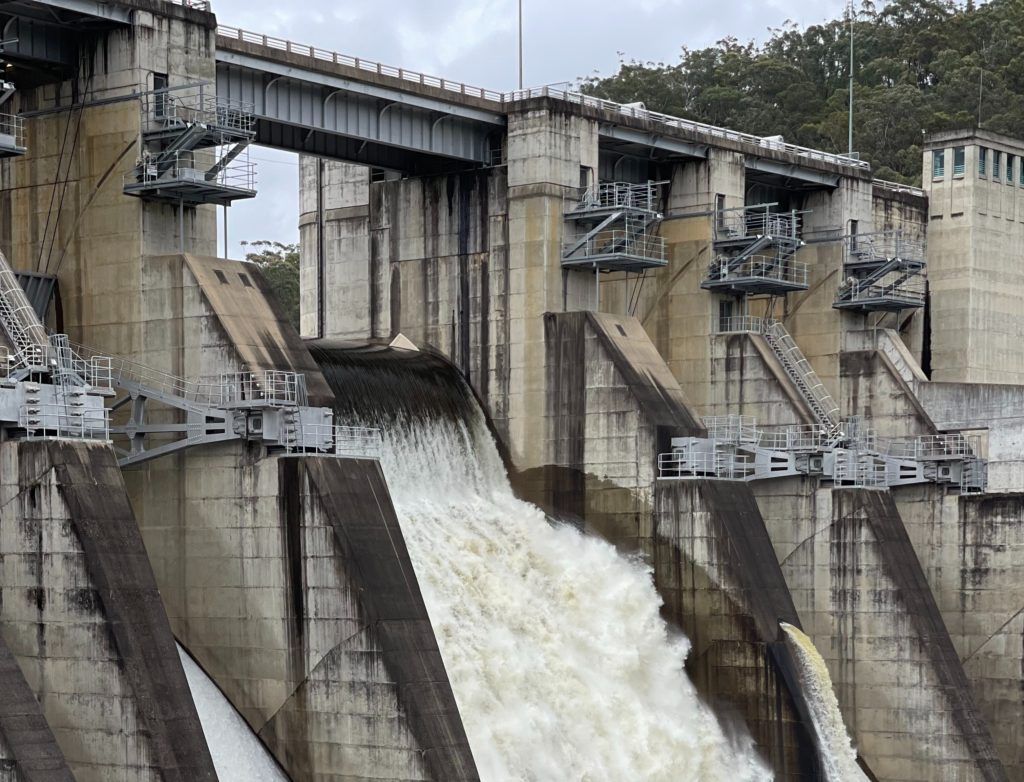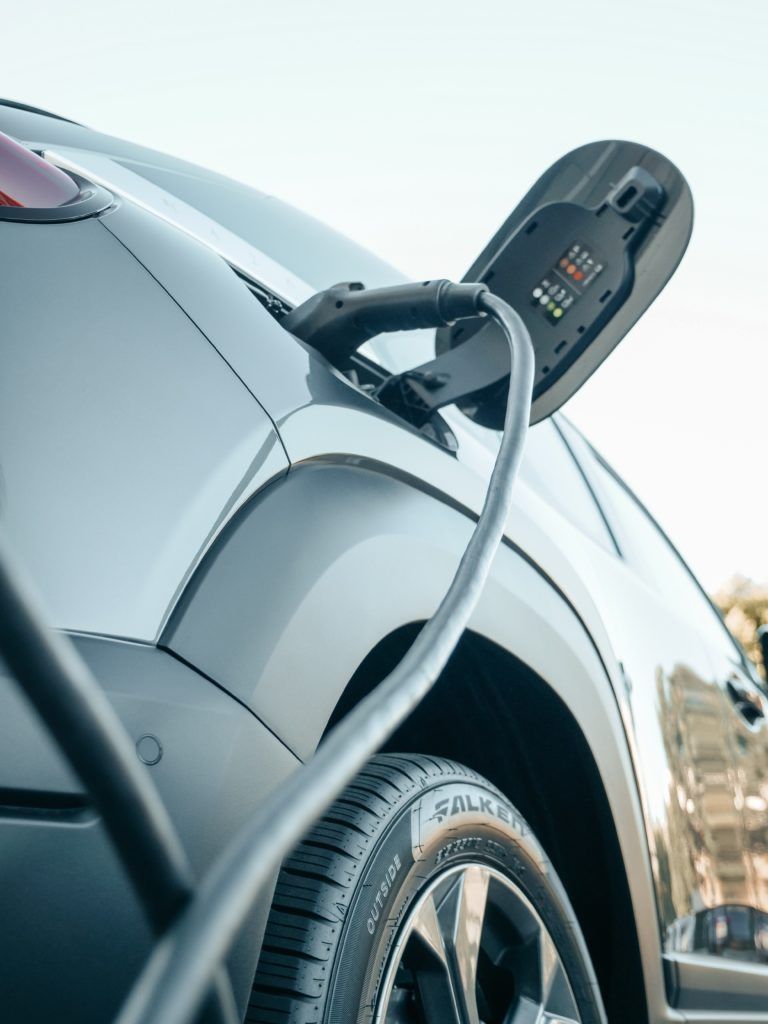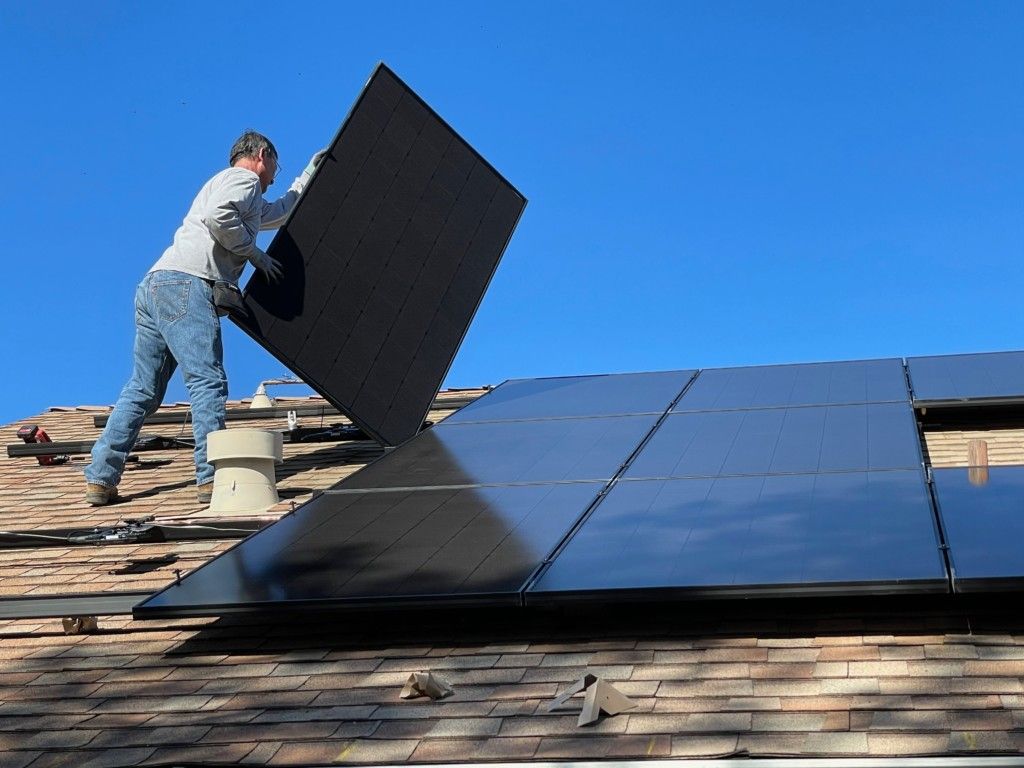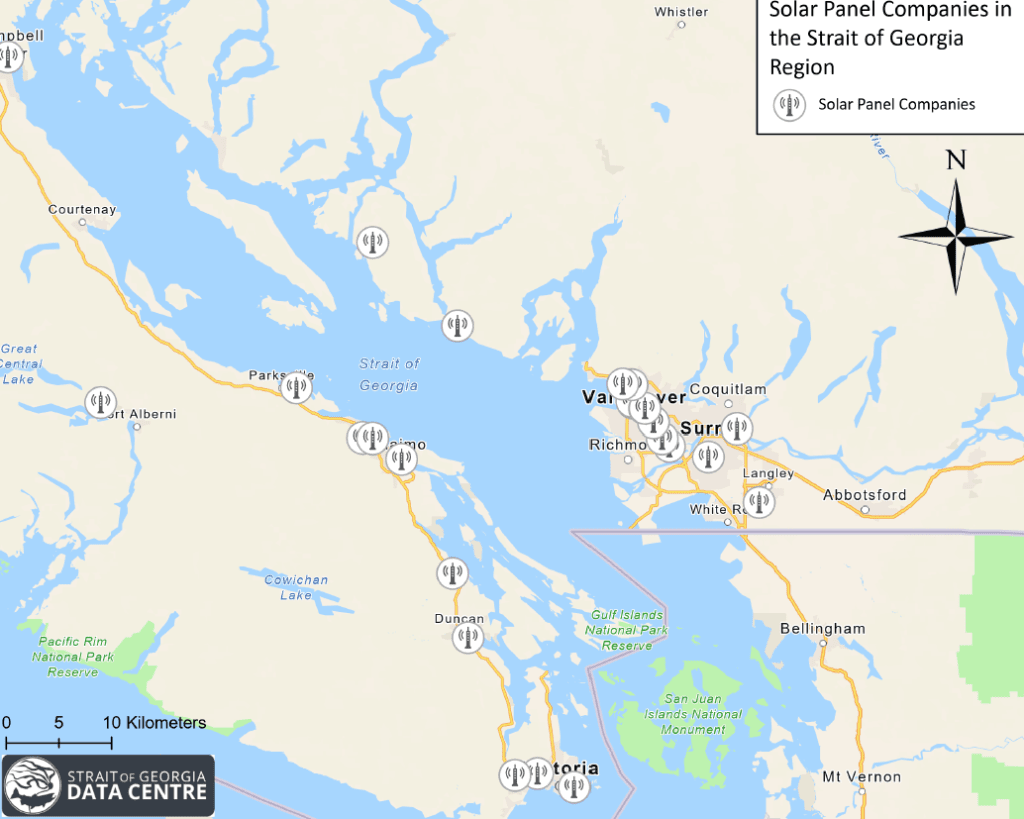An important way we as individuals can make a difference in our own personal footprint is with our energy use. Compiled below are a number of options for choosing cleaner and greener sources of energy to power our everyday lives.

Moving away from energy sources that rely on fossil fuels will reduce your carbon footprint which helps to flight climate change – one of the most significant threats to Pacific salmon.
Here are some greener energy suggestions:

In BC, 95% of our electricity comes from renewable sources, mainly from large hydroelectricity projects. So, using electricity to power your home and your vehicle comes with a low carbon footprint. There are now great electric alternatives to all the major fossil fuel-powered appliances.
Heating Systems
Many homes in BC are heated by fossil fuels, either by a natural gas furnace, oil or propane heaters, however, there are a number of electric alternatives:
Hot Water Heater
Heat pumps are not just for air, they are for water too. Hot water heat pumps are the most efficient way to heat your water with electricity and there are also rebates currently on offer to replace your gas or otherwise powered hot water system. Also learn about solar hot water heaters below.

Stoves
Induction ranges are a great electric alternative to gas stoves. They have the responsiveness that is prized with gas stoves, but they are incredibly safe (the burners don’t even get hot to the touch), easy to clean, and are better for you and your household. Recent research has shown gas stoves negatively impact your indoor air quality and have been linked to higher instances of asthma, reduced lung capacity and other respiratory problems. Furthermore, when not in use researchers are finding that gas stoves leak methane. (See this article about indoor air pollution with gas stoves).
Vehicles
There are now more options for electric cars than ever before. Switching from a traditional gasoline-powered car to a hybrid, plug-in hybrid or purely electric car is a great way to lower your carbon footprint – and save lots at the pump (or say goodbye to the pump altogether!)
There are rebates for electric cars too.

The List Goes On...
You can find electric lawnmowers and other garden equipment, boat motors, fireplaces, and barbecues – to name a few.
While the fact that most electricity in BC comes from hydro projects is great news from a greenhouse gas standpoint, there are still environmental consequences associated with hydroelectricity. The construction of hydroelectric dams causes habitat loss and severe ecosystem disruptions that can negatively affect salmon migrations, for example.
Collectively taking pressure off the energy grid will help reduce the need for new electricity generation projects in the future. Aside from minimizing your energy consumption overall, we can also take pressure off the grid by harnessing power from the sun!
Solar Panels
Learn more about solar panels and make an informed decision if solar would be beneficial in your situation (see Energy hub and BC Hydro).

Even though the costs of solar panels have come down significantly in recent years, it is still an investment. For example, a solar rooftop setup may cost $3,000 dollars and, for existing BC Hydro customers, it would take about 25 years to recoup the upfront cost at the current electricity rates. However, if you require off-grid power generation, solar is a great alternative to polluting generators. Financial sense aside, you may simply wish to be a part of the solution, which is a reason in and of itself to get panelling installed.
With a home solar panel system, it is also possible to send the excess energy you generate back to the grid to help offset your electricity costs. Learn about how this can work for you with BC Hydro’s net metering program (also see this simple diagram to visualize a system). With net metering, you stay connected to the grid and can access power generated by BC Hydro when needed – in cold, darker winter – and sell back excess power that you do not use at other times – during our warm, sunny, long summer days. If you are considering installing solar panels, here is how you can apply to be part of net metering and find a local installer from the map below.

Solar Hot Water
Installing a solar hot water heating system on your roof can significantly reduce the carbon footprint associated with heating your water. In summer, you will likely be able to meet all your hot water needs with just the solar hot water heating system. In winter, paired with your traditional water heater system, having a solar hot water system will still greatly reduce the electricity or gas you need to heat water. Learn more about solar hot water heating systems.

You may not be ready to electrify everything in your home. Natural gas is often the most cost-effective way to heat your home and hot water. Many chefs love cooking with a gas stove (though see above about stoves!) and a gas fireplace provides a wonderful ambience. Luckily, you can still reduce your impact by switching from conventional natural gas to renewable natural gas.
Currently, renewable natural gas is a little more expensive than conventional natural gas, but it is a carbon-neutral source of energy. Renewable natural gas is harvested from breaking down organic materials, often from a landfill, wastewater treatment plant or from agriculture or wood waste by-products. So, not only is the source of the gas renewable – organic waste products – it also prevents a more potent greenhouse gas – methane – from being emitted.
You can make the switch directly with your supplier, and renewable natural gas will work immediately with your existing appliances, no other change is required. Sign up with Fortis BC any time through your online account.
Additional resources
Learn about energy options and be engaged with the decisions being made for new energy infrastructure in your local community.
Photo credits: Bill Mead, Unsplash; Eiko Jones; Pradeep Wickramanayaka, Pexels; Rodnae Productions, Pexels; Kindel Media, Pexels; Gary Barnes, Pexels.